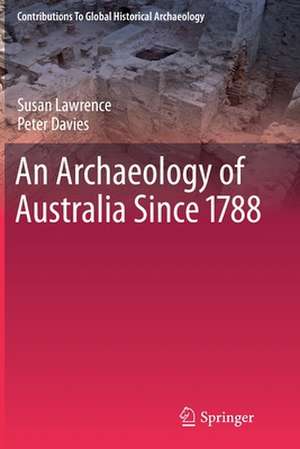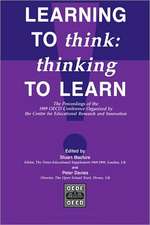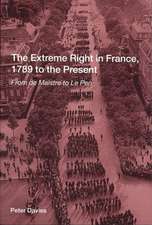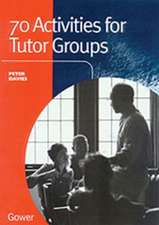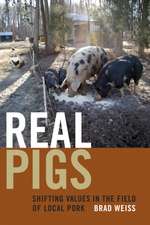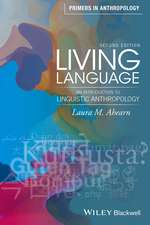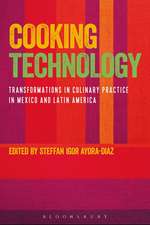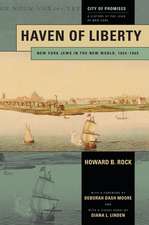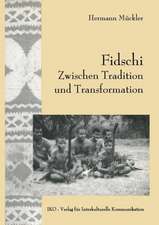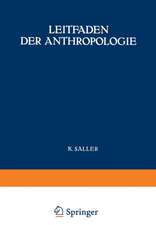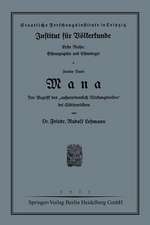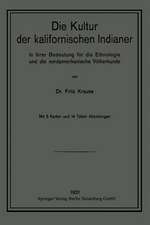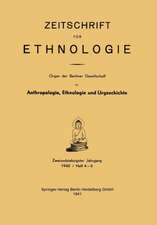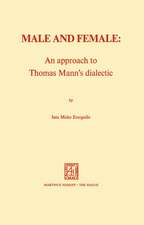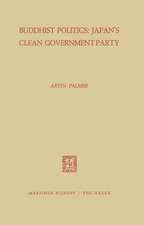An Archaeology of Australia Since 1788: Contributions To Global Historical Archaeology
Autor Susan Lawrence, Peter Daviesen Limba Engleză Paperback – 12 iul 2012
The book engages with a wide range of contemporary discussions and debates within Australian history and the international discipline of historical archaeology. The colonization of Australia was part of the international expansion of European hegemony in the eighteenth and nineteenth century. The material discussed here is thus fundamentally part of the global processes of colonization and the creation of settler societies, the industrial revolution, the development of mass consumer culture, and the emergence of national identities. Drawing out these themes and integrating them with the analysis of archaeological materials highlights the vital relevance of archaeology in modern society.
| Toate formatele și edițiile | Preț | Express |
|---|---|---|
| Paperback (1) | 399.12 lei 43-57 zile | |
| Springer – 12 iul 2012 | 399.12 lei 43-57 zile | |
| Hardback (1) | 406.80 lei 43-57 zile | |
| Springer – 28 oct 2010 | 406.80 lei 43-57 zile |
Din seria Contributions To Global Historical Archaeology
- 15%
 Preț: 640.24 lei
Preț: 640.24 lei - 15%
 Preț: 642.36 lei
Preț: 642.36 lei - 15%
 Preț: 643.84 lei
Preț: 643.84 lei - 15%
 Preț: 639.90 lei
Preț: 639.90 lei - 15%
 Preț: 644.82 lei
Preț: 644.82 lei - 15%
 Preț: 636.80 lei
Preț: 636.80 lei - 15%
 Preț: 643.84 lei
Preț: 643.84 lei - 18%
 Preț: 949.23 lei
Preț: 949.23 lei - 15%
 Preț: 640.24 lei
Preț: 640.24 lei - 15%
 Preț: 640.06 lei
Preț: 640.06 lei - 15%
 Preț: 641.71 lei
Preț: 641.71 lei - 15%
 Preț: 646.75 lei
Preț: 646.75 lei - 15%
 Preț: 642.03 lei
Preț: 642.03 lei -
 Preț: 390.46 lei
Preț: 390.46 lei -
 Preț: 391.79 lei
Preț: 391.79 lei - 15%
 Preț: 642.51 lei
Preț: 642.51 lei - 15%
 Preț: 647.73 lei
Preț: 647.73 lei -
 Preț: 383.71 lei
Preț: 383.71 lei -
 Preț: 387.96 lei
Preț: 387.96 lei - 15%
 Preț: 643.99 lei
Preț: 643.99 lei - 18%
 Preț: 968.65 lei
Preț: 968.65 lei - 15%
 Preț: 639.08 lei
Preț: 639.08 lei - 15%
 Preț: 636.63 lei
Preț: 636.63 lei - 18%
 Preț: 954.93 lei
Preț: 954.93 lei -
 Preț: 384.86 lei
Preț: 384.86 lei - 15%
 Preț: 641.85 lei
Preț: 641.85 lei - 15%
 Preț: 641.53 lei
Preț: 641.53 lei - 15%
 Preț: 643.99 lei
Preț: 643.99 lei - 15%
 Preț: 645.28 lei
Preț: 645.28 lei - 18%
 Preț: 733.46 lei
Preț: 733.46 lei
Preț: 399.12 lei
Nou
Puncte Express: 599
Preț estimativ în valută:
76.37€ • 79.95$ • 63.19£
76.37€ • 79.95$ • 63.19£
Carte tipărită la comandă
Livrare economică 07-21 aprilie
Preluare comenzi: 021 569.72.76
Specificații
ISBN-13: 9781461427162
ISBN-10: 1461427169
Pagini: 421
Ilustrații: XIX, 421 p. 87 illus.
Dimensiuni: 155 x 235 x 30 mm
Greutate: 0.68 kg
Ediția:2011
Editura: Springer
Colecția Springer
Seria Contributions To Global Historical Archaeology
Locul publicării:New York, NY, United States
ISBN-10: 1461427169
Pagini: 421
Ilustrații: XIX, 421 p. 87 illus.
Dimensiuni: 155 x 235 x 30 mm
Greutate: 0.68 kg
Ediția:2011
Editura: Springer
Colecția Springer
Seria Contributions To Global Historical Archaeology
Locul publicării:New York, NY, United States
Public țintă
GraduateCuprins
1. Introduction
2..Convict origins
3. Aboriginal dispossession and survival
4. Shipwrecks and maritime trade
5. Whaling, sealing and maritime industries
6. Pastoralism and agriculture
7. Gold rushes and precious metals
8. Manufacturing and processing
9. Migration and Ethnicity
10. An urbanised nation
11. Australians at Home
12. Death
13. The Twentieth Century and Beyond
2..Convict origins
3. Aboriginal dispossession and survival
4. Shipwrecks and maritime trade
5. Whaling, sealing and maritime industries
6. Pastoralism and agriculture
7. Gold rushes and precious metals
8. Manufacturing and processing
9. Migration and Ethnicity
10. An urbanised nation
11. Australians at Home
12. Death
13. The Twentieth Century and Beyond
Recenzii
From the reviews:
“An Archaeology of Australia since 1788 succeeds in presenting the broad-range of Australian historical archaeology and its contribution to understanding Australia’s past. The authors are to be congratulated in undertaking such a task and setting the scene for the next decade of growth in the field. This is a work that all serious historical archaeologists need, especially those formulating research designs for projects whether they be salvage archaeology or research archaeology.” (Iain Stuart, Australian Archaeology, Issue 72, June, 2011)
“The narrative writing style is accessible for most audiences as they need not be well-versed in Australian archaeology to benefit from this book. … is devoted to well-researched and influential themes of Australian archaeology and comprises figures, tables and numerous intriguing discussions that will precipitate and entice future research. The book was written to ‘present an overview of the material evidence … of Australian post contact history and the conclusions reached by historical archaeology’ (p2) and with much enthusiasm the authors have achieved this aim.” (Melissa Dunk, Eras Journal, November, 2011)
This volume amply demonstrates that it is far too soon to talk of a single archaeology of the modern world...The Lawrence and Davis volume is the first book-length overview of Australian historical archaeology since Graham Connah's The Archaeology of Australia's History was published in 1988. The significant methodological and theoretical changes to this field over the last quarter of a century mean that a new overview of historical archaeology in Australia is long overdue...The comprehensive range of case studies, which are often explicitly and implicitly tied to research outside of Australia, is one of this volume's real strengths...Another strength of the volume lies in bringing this research to a broader audience. Lawrence and Davies arealso generally excellent in explaining not just where some topics might be ripe for expansion, but also why they may have been under-studied in the past...It fully deserves to find a wide international audience, both as a quick reference to broad themes and as the definitive detailed guide to specific topics from Australian research. (Alasdair Brooks, Post-Medieval Archaeology, 46, 2, 2012)
“An Archaeology of Australia since 1788 succeeds in presenting the broad-range of Australian historical archaeology and its contribution to understanding Australia’s past. The authors are to be congratulated in undertaking such a task and setting the scene for the next decade of growth in the field. This is a work that all serious historical archaeologists need, especially those formulating research designs for projects whether they be salvage archaeology or research archaeology.” (Iain Stuart, Australian Archaeology, Issue 72, June, 2011)
“The narrative writing style is accessible for most audiences as they need not be well-versed in Australian archaeology to benefit from this book. … is devoted to well-researched and influential themes of Australian archaeology and comprises figures, tables and numerous intriguing discussions that will precipitate and entice future research. The book was written to ‘present an overview of the material evidence … of Australian post contact history and the conclusions reached by historical archaeology’ (p2) and with much enthusiasm the authors have achieved this aim.” (Melissa Dunk, Eras Journal, November, 2011)
This volume amply demonstrates that it is far too soon to talk of a single archaeology of the modern world...The Lawrence and Davis volume is the first book-length overview of Australian historical archaeology since Graham Connah's The Archaeology of Australia's History was published in 1988. The significant methodological and theoretical changes to this field over the last quarter of a century mean that a new overview of historical archaeology in Australia is long overdue...The comprehensive range of case studies, which are often explicitly and implicitly tied to research outside of Australia, is one of this volume's real strengths...Another strength of the volume lies in bringing this research to a broader audience. Lawrence and Davies arealso generally excellent in explaining not just where some topics might be ripe for expansion, but also why they may have been under-studied in the past...It fully deserves to find a wide international audience, both as a quick reference to broad themes and as the definitive detailed guide to specific topics from Australian research. (Alasdair Brooks, Post-Medieval Archaeology, 46, 2, 2012)
Notă biografică
Both authors are part of the Archaeology program at LaTrobe University in Melbourne and Lawrence is the president of the Australasian Society for Historical Archaeology. Both authors have written numerous books, chapters and articles on Australian historical archaeology.
Textul de pe ultima copertă
This volume provides an important new synthesis of archaeological work carried out in Australia on the post-contact period. It draws on dozens of case studies from a wide geographical and temporal span to explore the daily life of Australians in settings such as convict stations, goldfields, whalers' camps, farms, pastoral estates and urban neighbourhoods. The different conditions experienced by various groups of people are described in detail, including rich and poor, convicts and their superiors, Aboriginal people, women, children, and migrant groups. The social themes of gender, class, ethnicity, status and identity inform every chapter, demonstrating that these are vital parts of human experience, and cannot be separated from archaeologies of industry, urbanization and culture contact.
The book engages with a wide range of contemporary discussions and debates within Australian history and the international discipline of historical archaeology. The colonization of Australia was part of the international expansion of European hegemony in the eighteenth and nineteenth century. The material discussed here is thus fundamentally part of the global processes of colonization and the creation of settler societies, the industrial revolution, the development of mass consumer culture, and the emergence of national identities. Drawing out these themes and integrating them with the analysis of archaeological materials highlights the vital relevance of archaeology in modern society
The book engages with a wide range of contemporary discussions and debates within Australian history and the international discipline of historical archaeology. The colonization of Australia was part of the international expansion of European hegemony in the eighteenth and nineteenth century. The material discussed here is thus fundamentally part of the global processes of colonization and the creation of settler societies, the industrial revolution, the development of mass consumer culture, and the emergence of national identities. Drawing out these themes and integrating them with the analysis of archaeological materials highlights the vital relevance of archaeology in modern society
Caracteristici
The first volume in 10 years to cover the whole of Australian historical archaeology Co-written by the president of the Australasian Society for Historical Archaeological (ASHA) Written with an eye for the graduate level course in historical archaeology and maritime archaeology Includes supplementary material: sn.pub/extras
